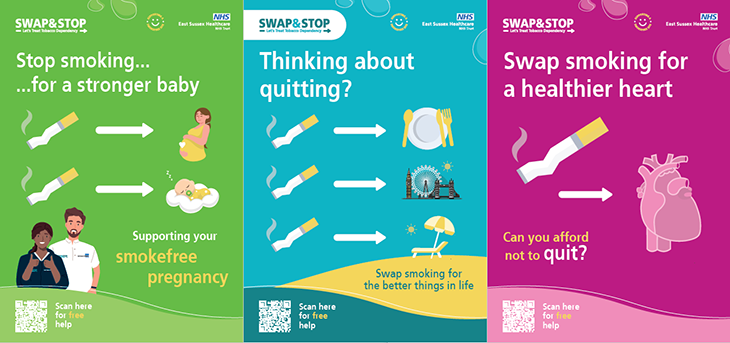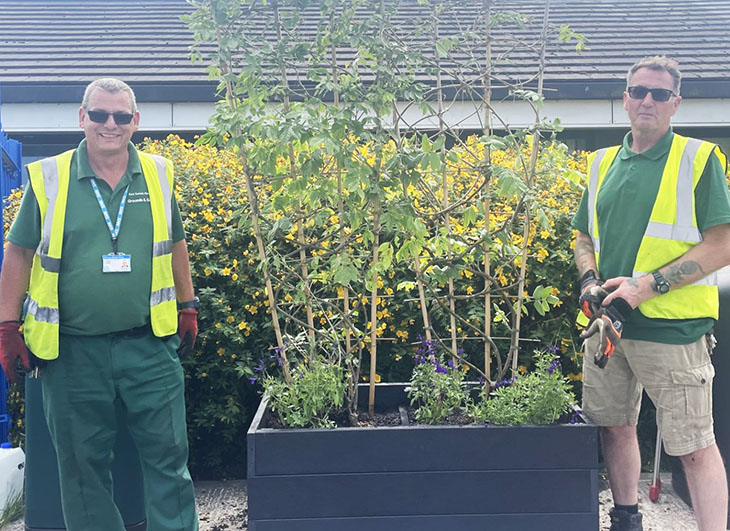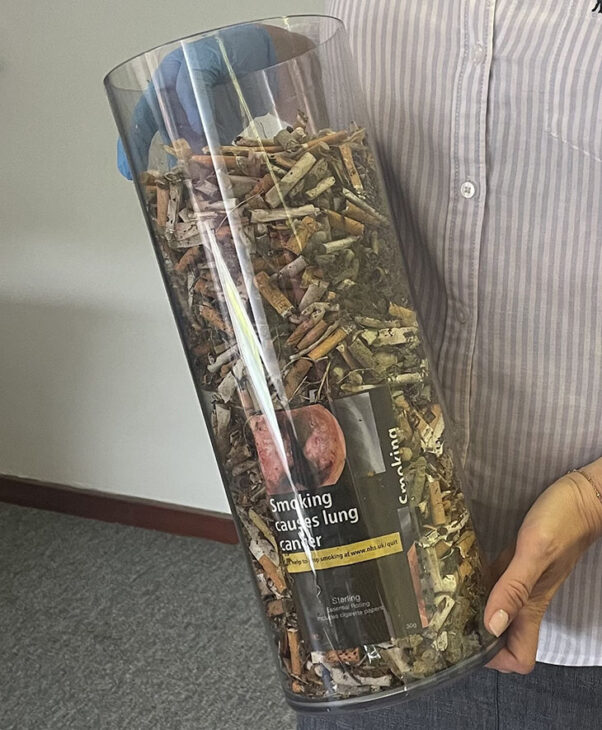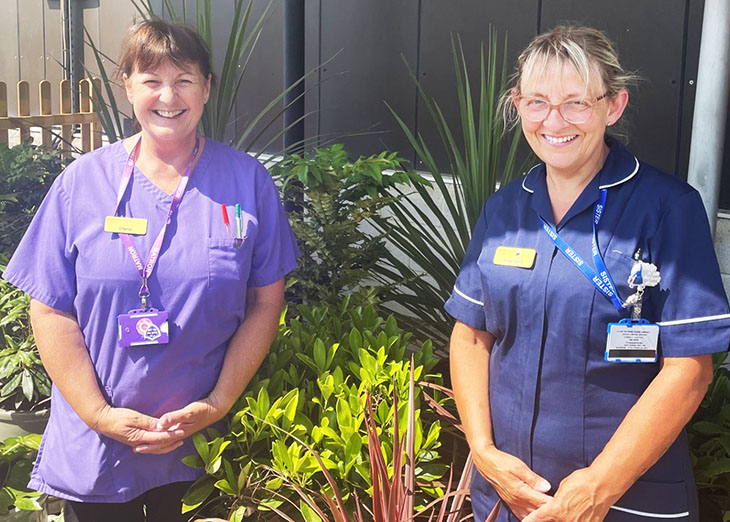Tobacco use, specifically cigarette smoking, continues to be the single largest preventable cause of ill-health, death and disability in the UK.
Tackling tobacco dependency is one of the most effective ways of eliminating health inequalities and arguably the single most important investment that we can make to improve the health, wealth and social wellbeing of our communities, while impacting positively on healthcare budgets.
We spoke to Sarah Keeling, Strategic Lead for Tobacco Dependence Treatment Services, about her role and how we can all support people to stop smoking.
“After setting up the inhouse Tobacco Dependence Treatment service in our maternity service and seeing the impact it had on increasing the number of smoke free pregnancies and the number of babies who went home to smoke free homes, I wanted to offer a structured opportunity for all admitted patients to be able to address their tobacco dependence.
“When people who smoke are in environments where smoking is not permitted, such as at our hospitals, they should be supported to manage nicotine cravings. Access to professional support, medications and counselling is key, and our new inpatient service delivers a person-centred approach.

Artwork from our ‘Swap and Stop’ smoking campaign
“We have started on our respiratory ward at Conquest: respiratory conditions are heavily influenced by smoking and cessation can significantly impact patient wellbeing, including faster recovery after surgery, reduced need for hospitalisation, and improved response to pulmonary treatments.”
Sarah has delivered training to colleagues from across the trust, to explain the benefits of treating tobacco dependence and delivering advice and support. These colleagues can now initiate treatment and offer referral to the in-house tobacco dependence team.
“Using nicotine replacement therapy to remain temporarily abstinent during their stay helps patients’ withdrawal symptoms and the ‘urge’ to smoke and increases their chances of quitting,” continues Sarah. “People find it easier to remain smoke free where smoking is completely prohibited. It is therefore important to ensure that we do not facilitate smoking or escort patients to smoke on hospital grounds, as this directly undermines the patient’s opportunity to stop.”

Phil West and Stephen Price from our grounds team stand beside one of our new planters
To support our Smoke free pledge, we have improved signage across the trust, as well as installing ‘Swap and Stop’ signage at Conquest, which has direct links to free support to quit. We have replaced old bins which had cigarette plates attached to the top and worked alongside Phil West and Stephen Price from our grounds team to plant new plants and create outside spaces that are dedicated to clean air, to deter visitors and colleagues from smoking on site.
Our grounds team is also responsible for clearing the litter from our hospitals, of which a huge proportion is cigarette butts. The team pick up thousands of butts each day – cigarette butts are made of plastic and do not biodegrade. Dropping a cigarette butt is no different to littering a water bottle, a crisp packet or any other item, with a huge impact on our environment.

Cigarette butt rubbish collection
Cheryl Baxter, Matron on Baird Ward, and Della Lillycrop, Sister on Baird Ward have been supporting the roll out of the tobacco dependence treatment service
“At the beginning I didn’t think it would be as easy or as successful as it has been,” said Cheryl. “Both patients and colleagues have embraced it. We aim to screen everyone admitted and it’s working. We have all worked together – healthcare support workers, nurses and doctors – to support our patients with their tobacco dependence. The training highlighted exactly how nicotine replacement therapy works and we can now better support and care for our patients.”

Cheryl Baxter, Matron on Baird Ward, and Della Lillycrop, Sister on Baird Ward, in the Egerton Entrance Garden
“Before the training we would just give patients a patch,” continued Della. “Now we are using combination therapy and we are seeing it really help. I think we will see a lot more people take up the offer of support after they are discharged as well.”
Smoking cessation clinics for colleagues are offered at Conquest, Eastbourne and Bexhill hospitals via One You East Sussex and supportive walkabouts are underway offering signposting to support to quit, raising awareness of our Smoke free site pledge and having wellbeing conversations with those who visit our site who smoke.
Sarah has plans to roll the service out to more teams across the trust, as well as to develop more areas promoting clean air.
If you are a smoker who would like support to stop, email esht.tobaccodependencereferrals@nhs.net.
